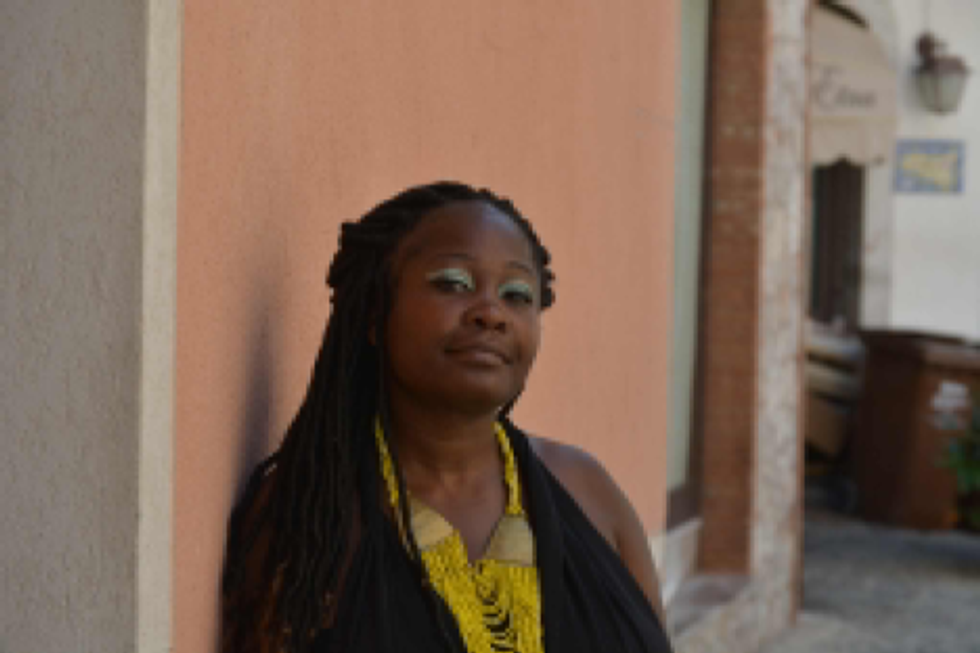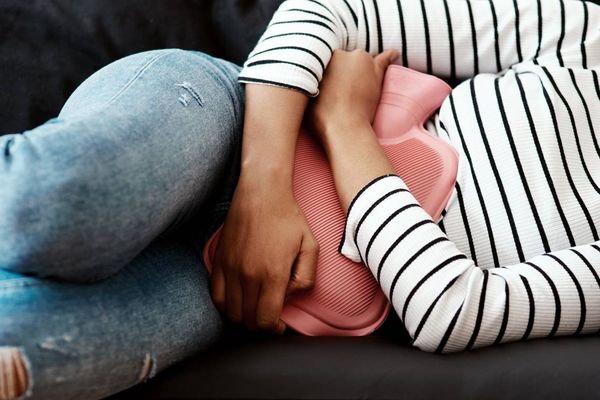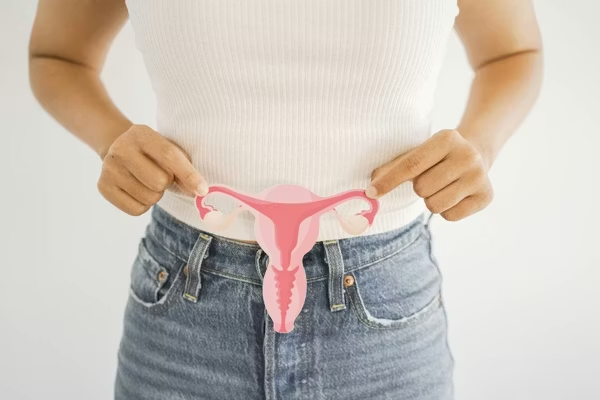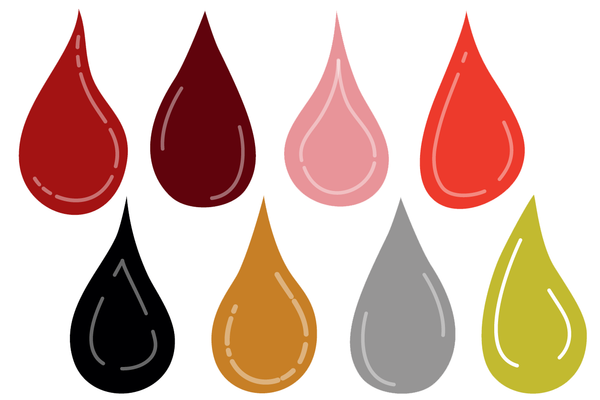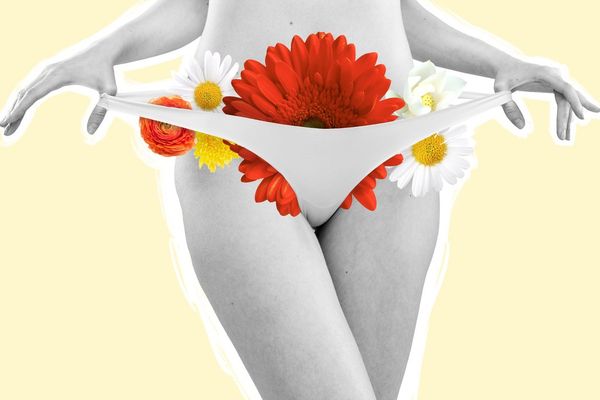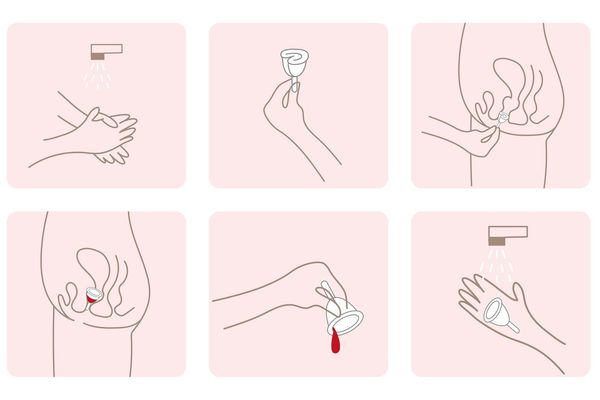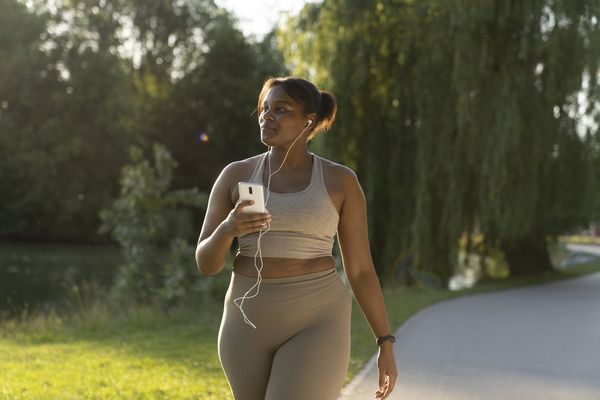By Shanta Lee Gander
This story is part of our Real Women, Real Stories series, documenting the lived experiences of women along their health journeys. Please always consult your health care professional with personal concerns or questions.
It was the summer of 1990 when the red terror started. I recall feeling dismay more than anything else, chanting "oh shit" to myself as if I'd just been handed another chore. At 12, I was already taking care of my autistic brother (despite having both parents in the home), maintaining my grades at school, and doing chores. Now I had to clean up a spill that would visit me every month.
I knew what to do. Thanks to a one-time, sixth-grade classroom "talk" delivered by an unmemorable older woman, I had a sample of sanitary napkins. I'd kept them hidden in an unassuming backpack in my closet, along with my journals, forbidden cassette tapes, and romance novels stolen from my mother. The cream-colored pamphlet from "the talk" featured a happy-to-be-bleeding cartoon girl, but offered no information about the details. When would it all start? Would there be a warning? And how long would it last?
I figured out the menstrual cycle on my own, but the severe cramps took me by surprise. To survive them, I stole over-the-counter pain relievers from my father's toiletry bag in the bathroom. I concealed myself under an ankle-length, salmon-colored, fuzzy robe more fit for a granny than a preteen girl. I figured if I could hide my body, my mother wouldn't discover the truth.
It's hard to explain how keeping this secret slipped from an instinctive decision into months of silence. Of course, the sample package of sanitary napkins ran out, and I needed something to absorb and disguise my period so my mother would not detect it.
That's when white tube socks proved to have multiple uses. They could be washed, or wrapped and hidden at the bottom of the garbage. And there was an endless supply, because I was in charge of doing the laundry in our household.
Oddly, the use of tube socks connected me to a history of menstruation I discovered years later, in a gender studies class at Trinity College. I learned that women used cloth scraps or rags, even after the first disposable pads hit the market in 1896. Cloth was the original, vintage sanitary napkin.
As I write this scene now, I still ask myself why I hid such a thing. By the age of 12, I understood that lying was required even when answering simple questions like "How are you?" or "Where'd you go today?" The correct answers were always "I'm good" and "Nowhere."
According to my mother, lipstick, nail polish, and permed hair were gateways to sex. Within the walls of our apartment at 280 Collins Street in Hartford, I was denigrated for all aspects of femininity. I had no ambassador to usher me into womanhood.
I remember other moments that encouraged me to keep my secret. In 1987, a faceless woman sitting on a family friend's couch was allowed to peer down my shirt, to see if my breasts were budding yet. Another time, I came home and overheard my mother loudly talking with my fifth-grade teacher about whether my period had arrived. And once, when I was 11, during an afternoon of sorting coupons outside our apartment building, I merely asked, "Where do these go?" when my mother screamed, "YOU'LL BE USING THEM ONE DAY!" These were all ways I learned that my body was something to be talked about, and that I was not someone to be talked with.
Two years later, I picked a random day to make the announcement. It was easier to make my menstrual confession over the phone, surrounded by silent midwives (a.k.a. the secretaries in the school office) rather than face-to-face. The crazy thing is, I recall more details from my staged period than from the day it actually started.
After the phone call, my mother picked me up from school and subjected me to car karaoke. She sang Prince off-beat in between her loud gum smacks as I (and my cramps) became part of the background noise.
That night I was introduced to my first menstrual taboo when I offered to help with dinner. My mother responded by saying, "You'll contaminate the food," in front of my father. Neither of them looked at me as I stood there in the kitchen in my growing shame. The next night, my mother burst into my bedroom with a Lysol can in hand. She was spraying the room in a frenzy, ignoring the fact that she also sprayed me as she complained about the dried blood smell. Another lesson I learned: become an expert at concealing the evidence.
Hiding my period for those two years was as natural as hiding my budding breasts, or sneaking off to have my first gynecological exam because I'd read about it in a women's health book.
Secrets have always played a key role in my family. Over the years, everything from human behavior to the menstrual taboo has come to fascinate me. I've been drawn to unpacking the shame and embarrassment I once carried around in a heavy bag, as Erykah Badu describes in her song "Bag Lady." I've also reflected on the nuanced ways the wider culture conspires to make girls and women feel shame about our bodies.
To any young woman who finds herself in a place so unsafe she can't confide in anyone, I see you. If you are being talked about rather than talked with, it's okay to find small ways of taking your body back. If you can, find some way to reclaim it as your own, although I understand this will sometimes feel impossible.
If I had to give one message to my younger self, I would say, You did right by protecting yourself. You'll need to sharpen this instinct of keeping your body safe. I wish I could tell you that you'll stop feeling shame, but I promise the bag you carry will get lighter. And while safety and survival will always feel questionable in your mind, you will become your own cartographer. You'll gain power with your words, and writing will be your balm.
Shanta Lee Gander is a photographer, poet, prose writer, investigative journalist, and multifaceted professional. She is the director of outreach and publicity at Mount Island — a small press and magazine dedicated to rural LGBTQ+ and POC voices — and a member of the Vermont Humanities Council Speakers Bureau. Shanta Lee is an MFA candidate in Creative Non-Fiction and Poetry at Vermont College of Fine Arts.
Myovant Sciences and HealthyWomen have come together to partner with women to tell their stories about periods. It is time to elevate the conversation around women's health and overcome the stigma around talking about menstruation. Selected storytellers will attend a workshop facilitated by The Moth, a nonprofit organization dedicated to building empathy in the world through the art and craft of true, personal storytelling. Join us in creating change by sharing your story.

